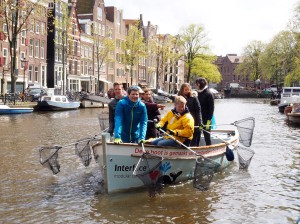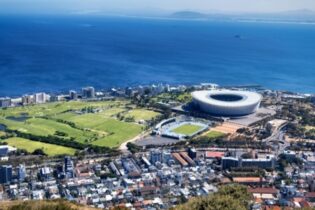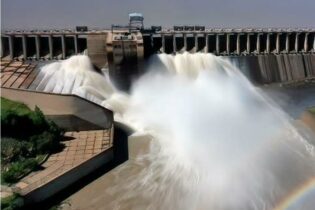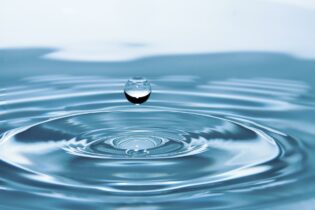
The Interface boat, made from plastic waste, is being used daily to scoop litter out of the canals of Amsterdam
Lesley Fidrmuc, KBAC’s Interface Consultant, says Interface has worked with Plastic Whale to design and build its own unique boat made from nearly 7000 of the over 50 000 plastic bottles already fished from the canals in Amsterdam.
“The boat is being used daily to fish waste out of the water systems and put a spotlight on the dangerous polluting effects of plastics in water,” Fidrmuc stated. The new Plastic Whale collaboration complements Interface’s existing environmental programme, Net-Works, an inclusive business partnership with the Zoological Society of London (ZSL) launched in 2012. Designed to rid the oceans of discarded fishing nets and draw attention to the harmful effects plastic waste has on marine life, Net-Works has already removed over 80 000kg of discarded fishing nets from the ocean and coastal areas in the Philippines. “Now, through its partnership with Plastic Whale, Interface will be taking a holistic approach to reducing marine waste in both oceans and rivers,” Fidrmuc adds.






